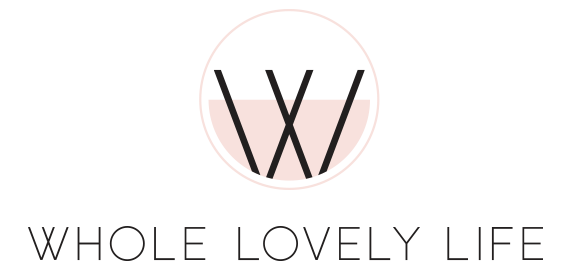 I have been on a protein-focused kick lately. I have never been one to really count my macros however, it is something I started recently and when I did I was shocked that I really was not getting as many calories as I should and to top it off my protein intake was quiet low.
I have been on a protein-focused kick lately. I have never been one to really count my macros however, it is something I started recently and when I did I was shocked that I really was not getting as many calories as I should and to top it off my protein intake was quiet low.
I know the importance of consuming high quality protein daily especially as you age. However, I really was not paying attention to my daily intake until recently. I’m 44 so getting more protein into my day is now a goal!
For someone like me who strength trains for 1-1.5 hours at least 3 days a week ensuring adequate protein intake daily can really make a difference in building and retaining the muscle you are working so hard to put on.
WHAT EXACTLY IS PROTEIN?
Protein is a macronutrient that is essential for the growth, maintenance, and repair of tissues in the body. Proteins are made up of smaller units called amino acids, which are linked together in a specific sequence to form a long chain.
There are 20 different types of amino acids that can be combined to form proteins, and each protein has a unique sequence and structure that determines its function. Some proteins serve as enzymes, which catalyze chemical reactions in the body, while others serve as structural components of tissues such as muscle, bone, and skin.
Protein is found in a variety of foods, including meat, fish, poultry, eggs, dairy products, legumes, nuts, and seeds.
HOW MUCH PROTEIN DO I NEED DAILY
The recommended daily intake of protein varies depending on factors such as age, gender, and activity level, but generally ranges from 0.8 to about 1 gram of protein per pound of body weight.
However, there are definitely mixed thoughts about this. A good rule of thumb is if you are active and doing strength train you need more than the average sedentary person. Keep in mind these are my protein goals and everyone is different. On the low end I aim to get 100 grams a day and on the high end I aim for 135 grams.
I recently listened to a podcast of the Model Health Show with Mark Sisson and he shared that its your weekly average that is important. So, if you added the grams you had all week and divided by 7 you would want to at least be hitting the low end of your goal.
MAKING PROTEIN A TOP PRIORITY
Fitness is a huge part of my life. I work out so that I can age gracefully and be the most healthy version of myself for everyone in my life. To kick off this new year I signed up for a 6 week program that focused on challenging strength workouts as well as counting macros.
What I found is that I was not getting nearly enough protein. When I made that my top priority, after 6 weeks I lost 3% body fat and gained muscle. Even though I have worked out forever I was surprised by the visual difference in my body and the strength I gained in just 6 short weeks. My eyes really opened to how incredibly critical protein is and what a difference it can make in achieving your fitness goals. And, if you are working to lose weight or reduce fat protein is a must.
PROTEIN HELPS WITH WEIGHT MANAGEMENT IN SEVERAL WAYS
Protein is more satiating than carbohydrates or fat, which means it can help you feel full and satisfied for longer periods of time. This can help you consume fewer calories overall, leading to weight loss or weight maintenance.
When you lose weight, you often lose muscle mass along with fat. Protein can help preserve muscle mass during weight loss, which is important for overall health and metabolic function.
Protein has a higher thermic effect of food (TEF) compared to carbohydrates or fat, which means it takes more energy to digest and process protein. This can lead to a slight increase in metabolism, which can help with weight loss. The more muscle you have the higher your resting metabolism, also known as resting metabolic rate (RMR), which is the number of calories your body burns at rest to maintain basic functions such as breathing, circulation, and temperature regulation. It represents the minimum amount of energy your body needs to function and is influenced by factors such as body composition, age, gender, and genetics.
RMR typically accounts for 60-75% of total daily energy expenditure, with physical activity and digestion accounting for the remainder. Increasing muscle mass through strength training, for example, can lead to an increase in RMR as muscle tissue requires more energy to maintain than fat tissue.
And finally protein is important for building and repairing muscles, which is important for physical activity. Engaging in physical activity can help with weight management by burning calories and improving overall health.
It’s worth noting that simply adding more protein to your diet won’t necessarily lead to weight loss if you’re consuming more calories than your body needs. However, including protein as part of a balanced diet and overall healthy lifestyle can be beneficial for weight management especially as you age.
Overall, protein is an important nutrient for maintaining optimal health, especially as you age.
WHY IS PROTEIN IMPORTANT ESPECIALLY AS WE AGE?
Protein is an essential nutrient that is important for maintaining and repairing body tissues, as well as for building and maintaining muscle mass. As you age, the benefits of protein become even more significant. Here are some of the key benefits of protein, especially as you age:
-
Muscle maintenance: As you age, your body tends to lose muscle mass, which can lead to weakness and reduced mobility. Protein is essential for building and maintaining muscle mass, so consuming enough protein can help prevent muscle loss and maintain muscle strength.
-
Bone health: Protein is also important for maintaining bone health, which is especially important as you age and your risk of osteoporosis increases. Protein is necessary for the formation of new bone tissue and can help prevent bone loss.
-
Weight management: Protein can help you feel fuller for longer, which can help with weight management. This is important because maintaining a healthy weight can help reduce your risk of chronic diseases like diabetes and heart disease, which become more common as you age.
-
Immune function: Protein is also important for maintaining a healthy immune system, which becomes weaker as you age. Consuming enough protein can help support your immune system and reduce your risk of infections and illnesses.
-
Wound healing: Protein is essential for wound healing and tissue repair, which can become more difficult as you age. Consuming enough protein can help speed up the healing process and reduce the risk of complications.
EAT AND TRAIN TO THRIVE
I have shared this in the past but when you focus on wellness and eating and training to thrive so that as you age you can do all the things you want to do it really makes healthy living a habit. When you focus on “why” you do what you do it changes everything!
In regards to counting macros, I don’t think it’s sustainable to count everything you eat (at least not for everyone). But I do think it is helpful especially at the beginning as you are learning about the foods that are highest in protein and the corresponding serving. Over time you will find your go to high protein foods and will be able to eye the serving size. I suggest a food scale when you are starting out. And, if protein is your primary focus, track only protein to start. When you hit your protein goals your other macros come into alignment as well. At least that is my experience!
Wondering what some of the highest whole food sources of protein is and some ideas for getting more of it into your day? You may find the below post helpful!
10 Protein Rich Foods That Will Help You Hit Your Daily Protein Goals
In Love, Health + Gratitude,
Katie
*Image Credit: Upsplash
